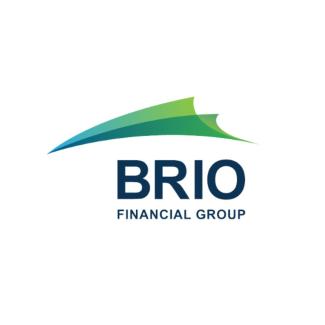
The Cure for Your Holiday Spending Hangover
by Brandon Miller on Jan 28, 2019
It’s okay. Most of us overindulged during the holidays. We ate too much. Spent too much. Did whatever too much.
But that’s what January is for. Making resolutions to do better. Not surprisingly, top resolutions every year are to lose weight, stick to a budget (which means you have to make one first), start exercising, and put more money away for your retirement/rainy day/mid-life crisis.
And every year around this time, you’ll find lots of advice for how to stick to your resolution(s). Suggestions such as be specific about your goals. Set a timeline. Enlist help from friends and family. Don’t let setbacks deter you from your ultimate goal.
All good advice. Except that most of these tips take a lot of willpower. You have to keep making a decision to act in your long-term interests instead of indulging in a short-term pleasure. No wonder we all fail!
Sadly, I don’t have a magic formula for the dieting or exercising routine. But I do have an easier way for you to stick to a budget and save money at the same time.
It’s something that can work for everyone from window washers to C-level executives to children. In fact, it’s something you might recognize from your childhood.
So what is this brilliant solution? An allowance. Don’t laugh. It honestly works—as lots and lots of my clients can vouch for. Even those aforementioned executives making gobs of money.
Here’s how to make it work for you.
Figure out how much money you really need to run your household each month. This is the amount of your allowance. Then have your paycheck and any money that comes in from other sources automatically deposited into a savings or brokerage account. Let’s call this your savings bucket.
Every month, have your allowance automatically deducted from your savings bucket and put into a checking or other account where you can pay your expenses for that month. The rest of your income is saved automatically. You can pay annual or big expenses, such as insurance and quarterly or property taxes, from your savings bucket.
Keeping your allowance constant means that anything extra is automatically saved. As the year goes on, your paycheck may go up because you’ve paid your full share of Social Security taxes and/or maxed out your retirement account contributions. So this amount is saved, not wasted. And if you get a bonus or raise, that goes into savings, too.
Contrast that with the usual way people handle their expenses. When there’s a little extra in your paycheck, it’s human nature to increase your spending. But with an allowance, that amount goes into your savings bucket before you even see it. More importantly, you have to make an effort to deduct it if you want to spend it.
And that really is the beauty of an allowance. Instead of having to consciously move money from your “spend” account to your savings, you just sit back and let everything happen automatically. And let’s be honest. It’s way easier to do nothing than something.
If you’re part of a couple or throuple that shares expenses, an allowance strategy can work particularly well for you. It forces you to talk about money and get on the same page about how much to save and how much to spend each month.
It can also get rid of the power dynamics that sometimes happen when one partner makes significantly more than the other(s). An allowance is a great equalizer, becoming everyone’s money, not just one person’s.
And you can tailor it as needed for your personal situation. For example, a couple bringing in $14,000 a month with a $10,000 allowance could put $8,000 into a joint account and $1,000 each into an account for both individuals.
By sticking to an allowance, you’re also preparing for retirement when your income will be fixed, or for a time when your income may drop due to maternity/paternity leave, taking a sabbatical, losing a job or becoming disabled. Who knew that the $5 you got every week as a kid for cleaning your room and taking out the trash could help you retire more comfortably?
If you give yourself an allowance now, maybe next January, gaining control over your money won’t have to top your resolution list.
Brio Financial Group is a registered investment adviser. SEC registration does not constitute an endorsement of the firm by the Commission nor does it indicate that the adviser has attaineda particular level of skill or ability. Advisory services are only offered to clients or prospective clients where Brio Financial Group and its representatives are properly licensed or exempt from licensure.No advice may be rendered by Brio Financial Group unless a client service agreement is in place.
